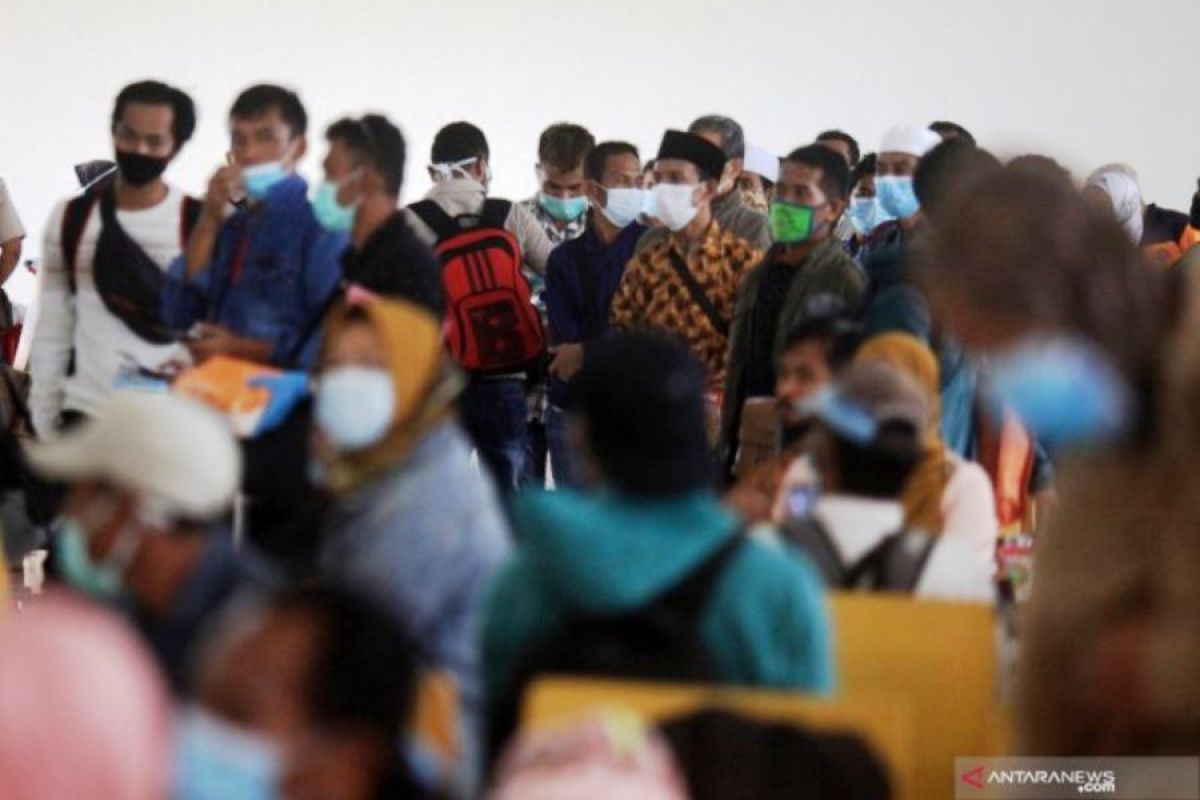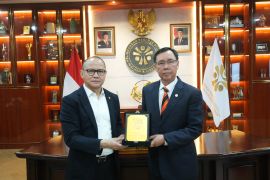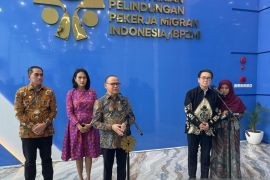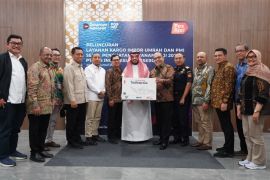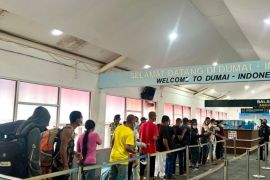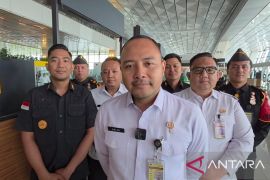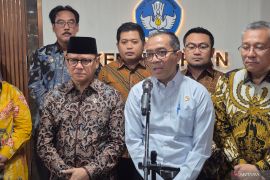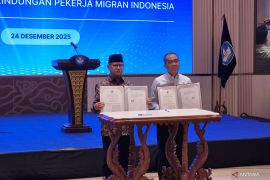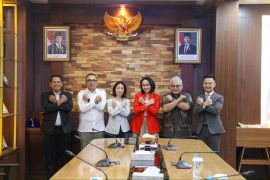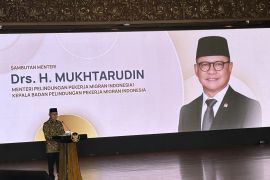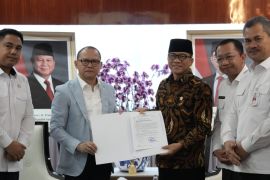The Ministry of Manpower has prevented Indonesian migrant workers from going abroad amid COVID-19 outbreak. The Indonesian Government also appealed to Indonesians abroad not to return as it does not have any plan to make repatriation mandatory. Instead, the government promised to give humanitarian aid.
Acknowledging that the Indonesian Government's decision to not make repatriation mandatory as the right decision due to deficient national healthcare policy in handling COVID-19, strategies to protect Indonesian nationality from coronavirus in host countries must be established as well, especially for Indonesian migrant workers who mainly are low-skilled with poor working condition.
Lesson Learned from SARS and MERS
Indonesia has been a major country of origin of labor migration for decades. Most of them travel to Asia Pacific and Middle East. They are mostly underpaid workers who work for domestic service and caregiver sectors, uncovered by labor and employment laws. Not only prone to exploitation and abuse for their socio-economic status on a daily basis, migrant workers are more vulnerable in times of crisis due to their status as 'foreigners'.
During SARS, three Indonesian caregivers died and twelve others were infected. Most of them worked not only as caregivers for the sick and elderly, but also for employers' family business, in which contract manipulation often occurred. The Indonesian Economic and Trade Office which acted as the state representative in Taiwan showed little effort to confront this.
Even the news about the Indonesian migrant workers contracting SARS first came from a migrant workers association. Despite the insufficient availability of ethnographic literatures representing the Indonesian migrant workers amid MERS, at home, the Indonesian Government showed a reactive measure, like postponing emigration, and hesitation to repatriate migrant workers after the death of one migrant worker in Saudi.
During this ongoing COVID-19 pandemic, no breakthrough came from the Ministry of Manpower. According to Migrant Care, the Indonesian migrant workers in China have shown their worries since the virus first emerged. Instead, they received discrimination from the Indonesian representative due to their unofficial status as workers. Other cases such as in the Indonesian crew members in Diamond Princess and Dream World cruise ships, and a migrant worker in Singapore did not make the Ministry of Manpower take active measures.
More active measures came from the Ministry of Foreign Affairs by considering the fact that citizen protection has become Indonesia's foreign policy priority. In this regard, MoFA has repatriated 243 people from Wuhan, 68 crew from Diamond Princess, 188 crew from Dream World, and around 20,000 of migrant workers from Malaysia. But, mechanism to protect marginalized Indonesian citizens abroad is still in question since the Ministry of Manpower and Indonesia's representatives abroad handed it over to host governments.
Possible Strategies
Considering that the massive scale of the COVID-19 outbreak greater than SARS and MERS, the Indonesian Government should take proactive actions to protect Indonesian migrant workers while host governments establish the most efficient policies for their citizens and foreign residents.
First, from micro level, Indonesian representatives should coordinate intensively with migrant workers associations to locate the migrants' workplace and residential addresses, identify whether they are well-informed on the disease and what they currently need. In most cases, the Indonesian representatives usually wait for NGOs or migrant workers themselves to register and report about their cases.
For formal migrant workers, the Indonesian Government must appeal to their host governments to ensure that the migrant workers' employers implement their duty of care by providing masks, sanitizers, proper working hours, promoting social distancing, giving access to health care, and repatriating them if necessary. The repatriation of Diamond Princess' Indonesian crew is one of the examples of how citizen protection can go hand-in-hand between state and private sectors.
Meanwhile, for informal migrant workers, without a legal contract, it is difficult for them to demand the same protection as the formal ones. As the COVID-19 outbreak is gripping the world, they are facing layoffs and getting stranded in a foreign country. NGOs and Indonesian diaspora should build solidarity to advocate these migrant workers' livelihood.
In Hong Kong, for instance, the Mission of Migrant Workers and Bethune House are gathering donations to help around 400,000 domestic workers that most of them are from Indonesia and the Philippines. The two countries' consulates also handed out masks, but the supplies were limited. Further strategies are needed. The Indonesian Government can start with negotiating with the host country to provide temporary places for homeless migrant workers to live; lobby employers to extend the working contract; provide staple food; and repatriate them if necessary.
Second, the Indonesian Government should advance its migrant workers' protection cooperation agenda. Indonesia has joined the ASEAN Declaration on Protection and Promotion of the Rights of Migrant Workers and supports ILO. In 2008, ASEAN and ILO established ASEAN Forum on Migrant Labour (AFML). Since then, the two organizations have regularly organized events. But, among twelve events held annually, the forum has never talked about migrant workers' protection amid pandemic.
Advocating a healthcare insurance for migrant workers to the negotiation table is critical since they often stumble upon complex barriers from financial and legal constraints to socio-cultural sentiments. These socio-economic hurdles get more complicated when infectious disease occurs and healthcare sectors are overwhelmed.
For short-term response to COVID-19, the Indonesian Government must allocate special budget for migrant workers' healthcare and logistics during quarantine period. This move is more efficient than repatriating them. Returning 243 citizens from Wuhan alone spent about 12 billion rupiahs. Known as "pahlawan devisa" (heroes and heroines of foreign exchange), giving back the migrant workers' remittance for their health care should morally be considered.
The government's response by giving protection to the migrant workers amid the COVID-19 crisis implies how territorial and administrative borders remain sacred. However, it is not enough to protect them and everyone else. COVID-19 should be the driving force to make the government more aware of the importance of migrant workers' protection whether in time of pandemic or not. Leaving migrant workers behind is not an option since the coronavirus does not discriminate against its sufferer and carrier.
The views and opinions expressed on this page are those of the author and do not necessarily reflect the official policy or position of ANTARA News Agency.
Related news: Laid-off workers to benefit from Pre-Employment Card Program
Related news: Social distancing: workers find working from home challenging
Copyright © ANTARA 2020
